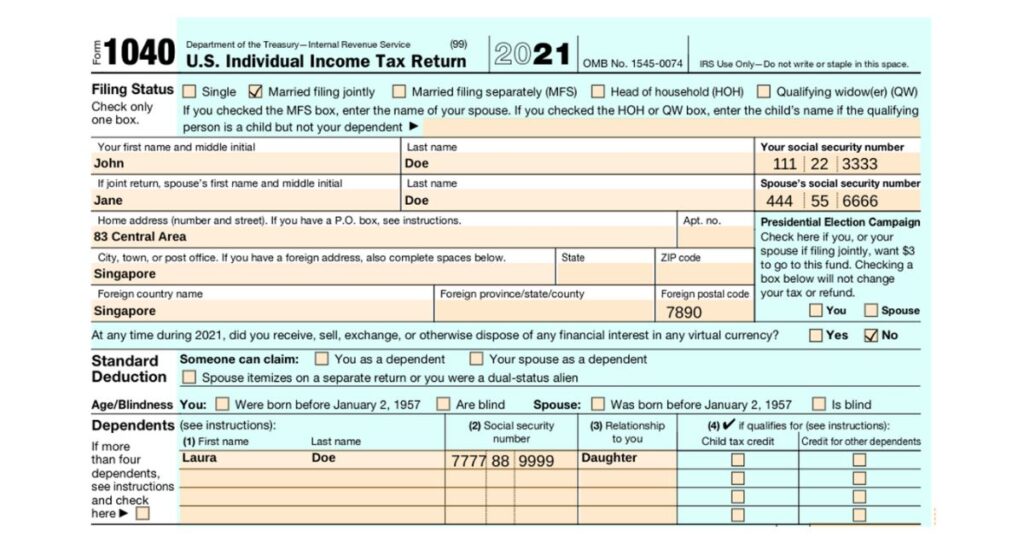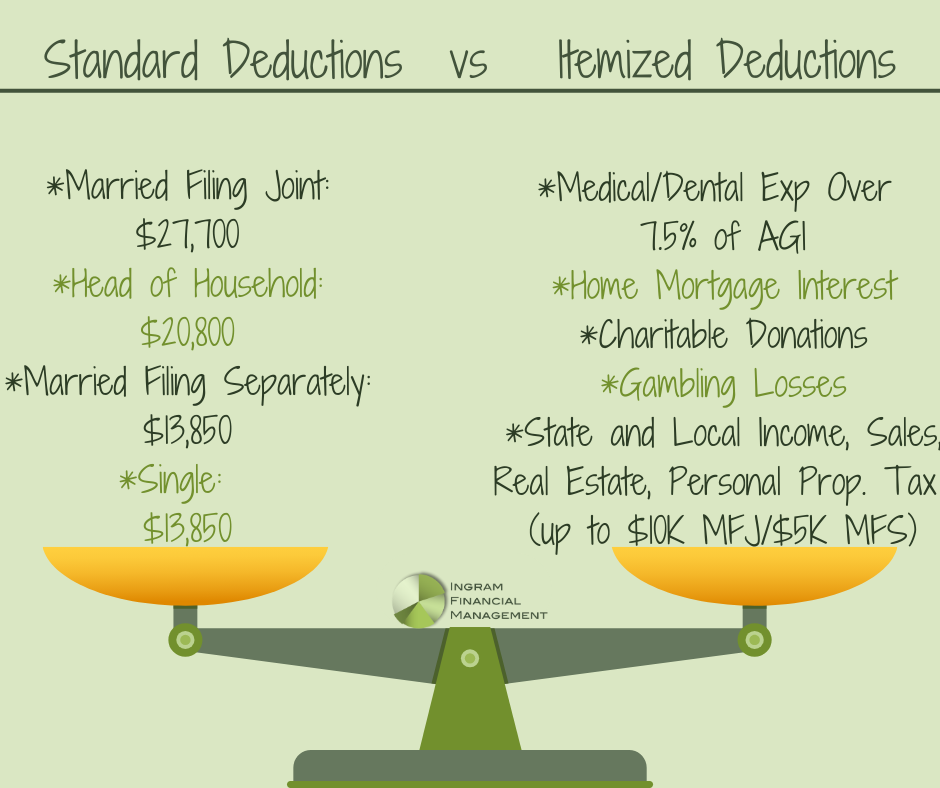Comprehending the Foreign Earned Earnings Exemption and Its Effect On Your Basic Deduction
The Foreign Earned Earnings Exemption (FEIE) offers substantial benefits for migrants, permitting them to omit a section of their foreign-earned income from U.S. taxes. Claiming the FEIE can make complex one's tax scenario, particularly regarding the basic reduction. Comprehending this communication is necessary for people living abroad. As migrants browse these complexities, they have to think about exactly how their options influence their overall tax responsibility. What methods can they use to optimize their financial outcomes?
What Is the Foreign Earned Income Exemption (FEIE)?
The Foreign Earned Earnings Exclusion (FEIE) serves as an important tax benefit for U.S. people and resident aliens functioning abroad. This provision allows qualified individuals to exclude a considerable section of their foreign-earned income from united state taxes, successfully lowering their total tax obligation problem. The FEIE intends to ease the financial pressure on migrants and urges Americans to seek employment opportunities in foreign markets. The exemption relates to incomes, salaries, and specialist fees made while living in an international country. The optimal exemption amount is adjusted every year for rising cost of living, making certain that it stays relevant to existing economic problems. By utilizing the FEIE, expatriates can retain even more of their earnings, cultivating economic stability while living overseas. On the whole, the FEIE plays a crucial function fit the monetary landscape for Americans abroad, promoting a smoother change to international job environments and promoting financial involvement on a worldwide scale.
Qualification Needs for the FEIE
Eligibility for the Foreign Earned Revenue Exclusion (FEIE) rests upon meeting certain requirements set by the Irs (INTERNAL REVENUE SERVICE) Mostly, individuals need to be united state residents or resident aliens that earn income while staying in a foreign country. To qualify, they have to satisfy a couple of primary tests: the Physical Existence Examination or the Bona Fide Home Examination.
The Physical Presence Examination needs people to be physically existing in an international nation for at least 330 complete days within a 12-month duration - FEIE Standard Deduction. Conversely, the Authentic House Test necessitates that individuals develop residency in an international country for an uninterrupted period that consists of a whole tax year
Furthermore, the revenue needs to be stemmed from personal services done in the international nation. Fulfilling these requirements permits taxpayers to leave out a considerable part of their foreign-earned earnings from U.S. tax, therefore decreasing their general tax obligation responsibility.
Just how to Claim the FEIE

To begin the process, people must collect papers that verify their foreign revenues, such as pay stubs, income tax return from foreign nations, and any type of appropriate work contracts. It is vital to assure all revenue declared under the FEIE is gained from international resources and fulfills the needed limits.
Furthermore, taxpayers need to take into consideration submitting target dates and any feasible expansions. Asserting the FEIE properly not just helps in minimizing tax obligation responsibility yet additionally guarantees compliance with IRS regulations. Correct paperwork and adherence to guidelines are important for a successful insurance claim of the Foreign Earned Revenue Exclusion.
The Interaction Between FEIE and Standard Reduction
The communication in between the Foreign Earned Revenue Exclusion (FEIE) and the common reduction is a vital aspect of tax obligation preparation for migrants. Comprehending the fundamental principles of FEIE, together with the constraints of the typical reduction, can considerably affect tax declaring techniques. This section will certainly explore these components and their ramifications for taxpayers living abroad.
FEIE Basics Described
While many migrants seek to minimize their tax worry, comprehending the communication in between the Foreign Earned Earnings Exemption (FEIE) and the common deduction is crucial. The FEIE permits united state people and resident aliens living abroad to exclude a specific amount of foreign earned income from united state taxes. This exclusion can considerably lower gross income, possibly affecting eligibility for various other deductions, such as the conventional reduction. Remarkably, individuals who assert the FEIE can not likewise take the typical reduction against the omitted earnings. As a result, expatriates need to thoroughly examine their total earnings and reductions to enhance their tax obligation circumstance. Recognition of these communications can lead to more educated monetary choices and far better tax obligation strategies for expatriates guiding via their one-of-a-kind conditions.
Criterion Reduction Limitations
Understanding the constraints of the standard deduction in connection with the Foreign Earned Income Exclusion (FEIE) is vital for expatriates maneuvering their tax obligation obligations. While the FEIE permits certifying individuals to exclude a particular quantity of foreign-earned revenue from united state taxes, it can influence the conventional deduction they are eligible to insurance claim. Particularly, taxpayers who declare the FEIE can not also declare the common reduction on that particular omitted earnings. In addition, if an expatriate's total revenue drops below the basic reduction limit, they may not benefit from it in all. This interaction requires careful preparation to optimize tax obligation benefits, as underutilizing the basic deduction can result in greater taxable income and enhanced tax obligation obligation. Understanding these limitations is critical for reliable tax strategy.
Tax Obligation Filing Effects
Steering the tax filing implications of the Foreign Earned Revenue Exclusion (FEIE) calls for careful consideration of exactly how it interacts with the standard reduction. Taxpayers utilizing the FEIE can omit a substantial section of their foreign-earned income, however this exclusion impacts their eligibility for the basic reduction. Particularly, if a specific insurance claims the FEIE, they can not additionally claim the conventional deduction for that earnings. This can bring about a lower overall tax obligation yet might complicate the filing process. Additionally, taxpayers have to ensure compliance with IRS needs when filing Form 2555 for the FEIE. these details Understanding these communications is vital for optimizing tax benefits while staying clear of prospective challenges in the filing process. Mindful planning can take full advantage of advantages and minimize responsibilities.
Potential Tax Obligation Effects of Using the FEIE
The Foreign Earned Earnings Exclusion (FEIE) offers substantial tax obligation advantages for U.S. residents working abroad, however it also features possible implications that require mindful consideration. One significant repercussion is the influence on qualification for sure tax obligation credit scores and reductions. By electing to utilize the FEIE, taxpayers might accidentally minimize their adjusted gross earnings, which can restrict accessibility to debts like the Earned Earnings Tax Credit scores or lower the quantity of basic reduction readily available.
In addition, look at this now individuals who utilize the FEIE might face difficulties when returning to the united state tax obligation system, particularly worrying the tax of future revenue. The exclusion uses only to earned revenue, meaning various other revenue types, such as rewards or passion, stay taxed. This distinction necessitates thorough record-keeping to guarantee compliance. Finally, the FEIE may impact state tax commitments, as some states do not acknowledge the exemption and may exhaust all earnings earned by their citizens, no matter where it is gained.
Tips for Optimizing Your Tax Obligation Advantages While Abroad
While functioning abroad can be enriching, it additionally presents unique possibilities to optimize tax obligation advantages. To make best use of these benefits, individuals ought to initially determine their eligibility for the Foreign Earned Revenue Exemption (FEIE) and take into consideration the physical presence examination or the authentic house examination. Maintaining in-depth documents of all income earned and expenses sustained while overseas is crucial. This documentation sustains insurance claims for credit histories and deductions.
Additionally, recognizing the tax treaties in between the United States and the host country can help stay clear of dual tax. Individuals must also discover contributions to tax-advantaged accounts, such as IRAs, which might provide additional reductions.

Getting in touch with a tax obligation specialist specializing in expatriate tax obligation law can offer tailored resource approaches and assurance compliance with both United state and international tax responsibilities. By taking these actions, migrants can efficiently enhance their economic scenario while living abroad.
Often Asked Questions
Can I Utilize FEIE if I Benefit a Foreign Federal government?
Yes, an individual can use the Foreign Earned Income Exemption (FEIE) while benefiting a foreign government, supplied they satisfy the requisite conditions laid out by the internal revenue service, consisting of the physical existence or authentic house tests.

Does FEIE Relate To Self-Employment Revenue?
The Foreign Earned Earnings Exemption (FEIE) does put on self-employment earnings, offered the private satisfies the essential requirements. Qualified self-employed people can leave out certifying earnings made while staying in a foreign country from taxation.
What happens if My Foreign Revenue Surpasses the FEIE Limitation?
The excess quantity might be subject to United state tax if foreign income exceeds the FEIE restriction. Taxpayers have to report and pay tax obligations on the revenue above the exemption threshold while still taking advantage of the exclusion.
Can I Declare the FEIE and Make A List Of Reductions?
Yes, individuals can declare the Foreign Earned Earnings Exclusion (FEIE) while also making a list of deductions. They have to be aware that declaring the FEIE may influence the accessibility of specific itemized deductions on their tax return.

Exactly How Does FEIE Affect My State Tax Obligation Commitments?
The Foreign Earned Income Exemption can decrease state tax responsibilities, as numerous states adhere to federal standards. Individual state guidelines differ, so it's crucial to get in touch with state tax obligation policies for certain effects on tax obligations.
The Foreign Earned Revenue Exclusion (FEIE) provides considerable benefits for migrants, allowing them to omit a portion of their foreign-earned revenue from United state tax. While lots of expatriates look for to lower their tax burden, recognizing the communication in between the Foreign Earned Income Exclusion (FEIE) and the typical deduction is essential. Understanding the restrictions of the common deduction in connection to the Foreign Earned Earnings Exclusion (FEIE) is important for migrants navigating their tax obligations. The exemption uses just to gained income, meaning other income types, such as dividends or passion, remain taxable. The Foreign Earned Income Exemption (FEIE) does use to self-employment earnings, gave the individual satisfies the essential needs.